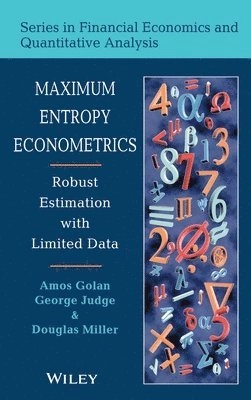In the theory and practice of econometrics the model, the method and the data are all interdependent links in information recovery-estimation and inference. Seldom, however, are the economic and statistical models correctly specified, the data complete or capable of being replicated, the estimation rules optimal and the inferences free of distortion. Faced with these problems, Maximum Entropy Economeirics provides a new basis for learning from economic and statistical models that may be non-regular in the sense that they are ill-posed or underdetermined and the data are partial or incomplete. By extending the maximum entropy formalisms used in the physical sciences, the authors present a new set of generalized entropy techniques designed to recover information about economic systems. The authors compare the generalized entropy techniques with the performance of the relevant traditional methods of information recovery and clearly demonstrate theories with applications including Pure inverse problems that include first order Markov processes, and input-output, multisectoral or SAM models to Inverse problems with noise that include statistical models subject to ill-conditioning, non-normal errors, heteroskedasticity, autocorrelation, censored, multinomial and simultaneous response data, as well as model selection and non-stationary and dynamic control problems Maximum Entropy Econometrics will be of interest to econometricians trying to devise procedures for recovering information from partial or incomplete data, as well as quantitative economists in finance and business, statisticians, and students and applied researchers in econometrics, engineering and the physical sciences.
Åtkomstkoder och digitalt tilläggsmaterial garanteras inte med begagnade böcker





















